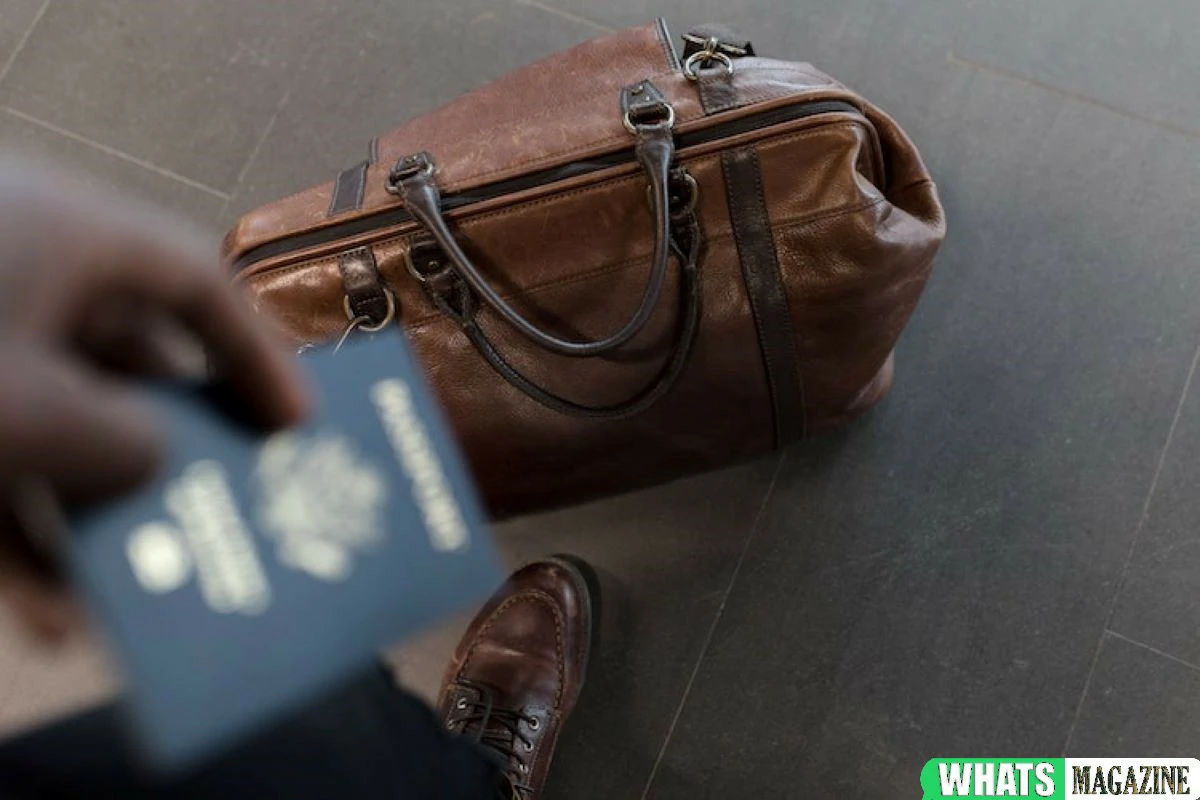Feature image Alt text: Man with a brown travel bag and passport
Traveling opens doors to new horizons and experiences. It’s an exhilarating journey into the unknown, but it also brings the challenge of managing addiction triggers for many. These triggers aren’t just the blatant reminders of past habits but can lurk in unexpected corners— from the stress of a delayed flight to the allure of local nightlife. Preparation, proactivity, and understanding of one’s vulnerabilities are not mere choices; they’re necessities. You can transform travel into a healing experience rather than a risky gamble by harnessing the right strategies. In this blog, we’ll delve deep into how you can protect yourself, ensuring that your travels are filled with beautiful memories rather than unwanted challenges.
In this article
Understanding Addiction Triggers
At its core, what is an addiction trigger? Picture it as a siren call—any external or internal stimulus that beckons you to old habits. When traveling, these triggers aren’t just intensified but often camouflaged. The charm of a new city’s nightlife, the loneliness in a foreign land, or even the simple act of being served a complimentary drink on a flight can be potential pitfalls. Recognizing these nuances is the cornerstone of defense against them.
Managing Addiction Triggers While Traveling Requires Prior Planning
Proactive planning extends beyond mapping out tourist spots or finding the best local cuisine. For someone keen on managing addiction triggers, planning is the suit of armor against potential pitfalls. Before embarking on your journey, visualize scenarios that might prove challenging. Will there be social events where temptations loom large? Could certain travel companions prove less than supportive? By mapping out these factors in advance, you can create a strategy that ensures safety. Just as you wouldn’t venture into a storm without an umbrella; you shouldn’t dive into travel without a solid plan that shields you from relapse.

Know Your Triggers
Identifying and managing addiction triggers is akin to knowing your enemy in battle. Triggers, as well as subtle signs of relapse, vary wildly. While one person might find solace in a bustling marketplace, another might see it as a maze of temptations. The first step? Self-awareness. This is not a one-off exercise but a continuous process. Regularly set aside time for introspection. Whether through journaling, meditating, or engaging in candid discussions with therapists or support groups, strive to understand what makes you vulnerable. By pinpointing that, you’re not just spotting the landmines but charting a safer course through them.
Establish a Daily Routine
In the whirlwind of travel, a routine serves as an anchor. It might seem counterintuitive— after all, isn’t travel about breaking free from routine? Yet, a structured day provides a comforting predictability amidst foreign environments. It’s not about binding yourself but creating a gentle framework that offers stability. Set regular meal times, even if it’s just a quick snack. Have a morning ritual, be it a brisk walk, a few pages of a book, or a short meditation session. Designate evenings for relaxation— maybe some light music or journaling. This routine becomes a protective bubble, insulating you from unforeseen triggers.

Stay Connected
Connectivity isn’t just about Wi-Fi signals or roaming plans. For those managing addiction triggers, it’s about maintaining ties to a support system. Whether in the form of friends, family, or support groups, this lifeline can be the buoy that keeps you afloat in challenging waters. Schedule regular check-ins, even if they’re brief. With the digital age, you’re never truly isolated. Online support groups or therapy sessions can be accessed even in remote destinations. If a situation triggers discomfort or temptation, a single call or message to a trusted person can help ground you, reminding you of the strides you’ve made and the reasons behind them.

Avoid High-Risk Situations
There’s a thrill in diving into the unknown, but sometimes caution trumps adventure. Recognizing places or events that might be veritable minefields of temptation is essential. Before setting foot in a new city, a bit of research can go a long way. User reviews, travel blogs, or local advice can highlight areas best avoided. Choose accommodations that aren’t in the middle of a nightlife hotspot or near establishments that may trigger old habits. Plan outings that align with your goals, and if you’re attending social events, mentally prepare for scenarios that might be challenging. Forewarned, as they say, is forearmed.
Practice Mindfulness and Grounding Techniques
The world rushes by in a blur during travel, making it easy to lose oneself. But in moments of potential relapse, grounding oneself can be transformative. Mindfulness is more than a buzzword; it’s a compass pointing you back to the present moment. Short deep breathing sessions, tactile grounding methods like feeling the texture of an object, or even just taking a moment to truly taste your food can help. By practicing these techniques, you anchor yourself in the now, reducing the risk of your mind wandering to places or memories that might trigger cravings.
In Conclusion
Travel is transformative, a symphony of experiences and growth. Yet, every traveler carries a unique set of challenges. By understanding, acknowledging, and diligently managing addiction triggers, the journey becomes a tapestry of not just places but also personal milestones and triumphs. The roads we travel are often symbolic of the paths we tread in life. They may be filled with unexpected turns, steep climbs, or sudden downpours. Yet, with resilience and the right strategies, we can navigate these routes with confidence and grace. Every setback faced, and every challenge overcome adds layers to our personal growth story. With preparation, mindfulness, and unwavering support, the world becomes a series of destinations and a transformative journey. As you tread this path, embrace every moment, for in each step lies the potential for growth, healing, and a deeper understanding of oneself.







